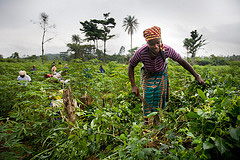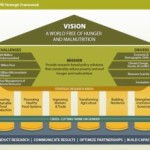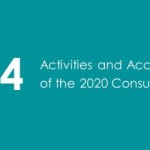The following post by Lindiwe Majele Sibanda, Chief Executive Officer of the Africa-wide Food, Agriculture and Natural Resources Policy Analysis Network (FANRPAN), is an excerpted version of a story that originally appeared on the CGIAR Research Program on Water, Land and Ecosystems (WLE) Agriculture and Ecosystems Blog as part of their month-long series on Resilience.
Building resilience on Africa’s small farms starts with people and investing in their capacity to bounce back after a shock. These shocks could be external, such as droughts and floods that wipe out an entire livestock herd or destroy a crop field. Or, they could mean loss of income and physical assets, many times due to unforeseen prolonged illness.
If a family member falls ill, their care is often financed by selling off productive assets such as livestock or agricultural tools. Harvest barely meets more than three months of the family food needs for a majority of the farmers.
African smallholder farm families are amongst the world’s poorest because we have not invested enough in helping them bounce back after major shocks. One dry season or one bout with malaria can push families into a poverty trap. When households have depleted their productive assets (finances, livestock, farming implements), they can barely survive. How do we expect such households to improve and sustain their productivity? How can we expect a bounce back for communities that have lost elasticity?






